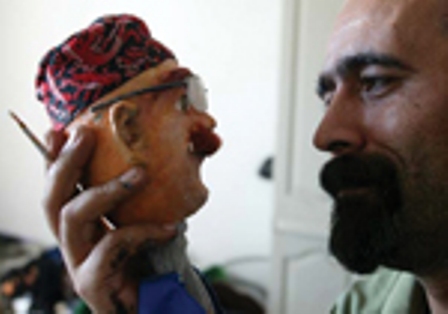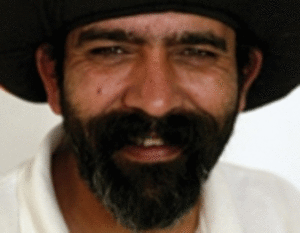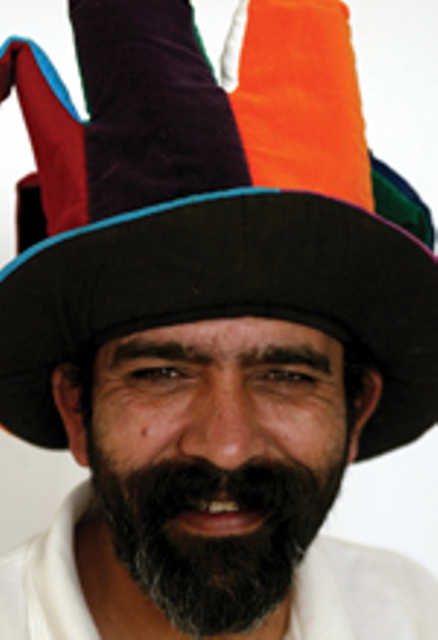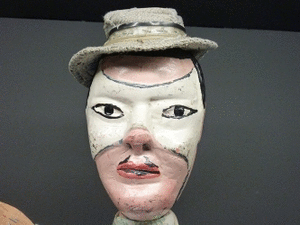Nidal Khatib started his journey in a prison cell. Back in 1982, Khatib was put in an Israeli jail for six months for distributing posters during Land Day. There he met his fellow detainees, who became part of the “theatre” they all created. They turned the cell into a stage and used the tools available to them as props. This was the starting point for Khatib that led him to become an exquisite puppeteer.
Khatib was fascinated mostly by the idea of “changing roles.” Through the stage, he found a medium for self-expression.
Upon his release from prison, Khatib decided to go further with theatre. He joined the Hakawati Theatre in Jerusalem and found himself especially attracted to comedy: “The theatre is a place where people can receive spiritual joy and, at the same time, it leaves them with a message,” Khatib explains. The first play he performed as a professional actor was Slaves Go West, directed by Radi Shehadeh.

Then the first Intifada erupted in 1988, and Khatib was back in jail for another six months, this time in Ansar-3, an Israeli prison compound located in southern Palestine. He, once again, used his time in jail for a new production. Ansar-3, named after the prison compound, deals with surviving the prison cell, the challenges he faced, the dry desert, and the hardship of being disconnected from family. The play was then directed by Fateh Azzam and performed in various places in Palestine, the United Kingdom, Canada, and the United States.
Following the success of Ansar 3, Nidal pursued his theatre studies at Lancaster University in the United Kingdom and returned to Palestine in 1991 upon graduating. Khatib came back with a new spirit in mind and decided to dedicate his work to children’s theatre by establishing Tantoura puppet theatre. Khatib has an entire family of puppets that extends from daughters of mothers to sons of army soldiers!
His decision to move from adult to children’s theatre, specifically puppetry, emerged for many reasons. First and foremost is because Khatib has a passion to send a message of hope, peace, and love to Palestinian children. “Life in Palestine is full of pain,” he explains, “but I want to be happy and defend the peace and love in the world, with myself and with the children.” In addition, he enjoys working with puppets: “Each has a character,” he says, “and a spiritual connection.”

Khatib met his beloved Maysoun in Februaury 2000, when a partnership began. Maysoun became an integral part of the puppet theatre and added the female voice and spirit to the work. Khatib believes in the importance of having a woman in this medium that for too long has been dominated by the male voice. They now work together as a family along with their four children: Mousa (10 years old) is the technical assistant; Maysam (8 years old) and Majdal Shams (6 years old) are costume designers, and Makram (5 years old) is the youngest Palestinian actor! The children are always present during shows, either as actors or behind the scenes. They have almost 200 shows every year at schools and in villages, camps, cities, and various Palestinian communities.
The couple was awarded the Palestine Award for Excellence and Creativity in 2010.

Currently, the family is working in Shadow Theatre and just finished the production of The Inferno of the Shadow, now on tour in Palestine. The play addresses the issue of violence against women and their right to inheritance.
(from “This Week in Palestine”)

























does anyone have his email or contact please..?